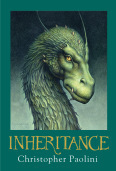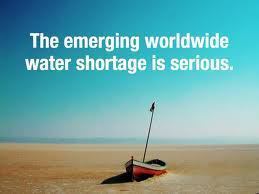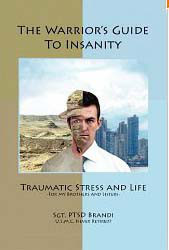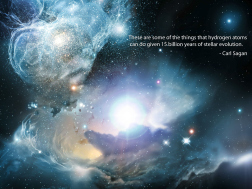Alon Shalev's Blog, page 54
November 19, 2011
Getting Creative
This week, as part of my virtual book tour, I stopped by Richard in Anderson, South Carolina. His blog is Bound & Determined (to find a good read). Richard reviewed The Accidental Activist (he is the first person to hug my book … at least who admitted to doing so!). He also posted a short article that he requested I wrote on The Creative Process.
Thank you, Richard.
The Creative Process
I was recently asked in a workshop how I find time to write. I had surprised the audience when I asserted the ability to write a 90,000 novel in 100 days. I write at this pace while holding down a challenging full-time job and being an active and involved husband, father, and community member. In fact, I have done this twice in 2011 and could keep writing if I didn't have to attend to marketing and promotion.
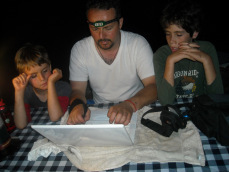
I can write anywhere - even in a redwood forest.
Many authors have their own personal framework: the sacred space in their house, listening to certain music, the writer's retreat, and many more. Whatever works for you is right, but my desk in our kitchen. I swivel my chair around and I am at the dinner table. I can write in coffee shops, on the train ride as I commute, or while several boys enjoy a rambunctious play-date in our tiny house.
Writing has always been a natural process for me and I rarely need to spend much time deliberating what my plot is going to be or developing my characters. From what I hear, this is not typical.
It is a state of mind. When I am writing a novel, I am in an intimate relationship with my characters. Since I do not plan my novels before writing, I am absorbed in the plot, sharing the thrill of what might happen next, just as my readers and characters experience it.
I am able to switch off, to leave my characters and focus at work or home, and switch back on when I have an hour to write. What I do think is important is that I am writing consistently. When I am in the creation process, I must write every day. In fact, I am pretty sure that I become quite insufferable when I am not keeping up with my characters.
The Accidental Activist, a political courtroom drama in which two young individuals are sued by a multinational corporation and need to defend themselves in court, is based upon a real court case. The food giant, McDonalds, sued two activists in England in the 1990′s and the archaic legal system did not allow legal aid to be granted in a libel trial (they have since overhauled these laws because of this case). Try to blow up the Queen's Corgis (her dogs) and the state provided you with a lawyer, but not for libel. So the plot was pretty much laid out for me. With what happened there, I didn't need to embellish.

The Real Heroes - Helen Steel & Dave Morris
But even when I do not base a novel on something that really transpired the story has always quickly taken shape. For example, A Gardener's Tale is a reflection on the fast-disappearing rural life in England and the magic of the Pagan religion that still permeates village society, or Unwanted Heroes (release Spring 2012) which is a critical view of how we in America treat our war veterans, as seen though the eyes of a young English Kerouac-wannabe in San Francisco. The first draft to both these novels were each written in a quick and intensive period of time.

Later this month the e-book will be released with a new cover.
It is an amazing thrill, a rush, to see the novel come to life under my fingertips. It is what makes the periods between writing so frustrating, and what keeps me always coming back for more.
——————————————————————————————————
Alon Shalev is the author of The Accidental Activist (now available on Kindle) and A Gardener's Tale. He is the Executive Director of the San Francisco Hillel Foundation, a non-profit that provides spiritual and social justice opportunities to Jewish students in the Bay Area. More on Alon Shalev at http://www.alonshalev.com/ and on Twitter (#alonshalevsf).
November 18, 2011
The Power of Paolini – Thank You Christopher
Last week, Christopher Paolini released the fourth book in the Inheritance Trilogy (sorry Christopher – even though we (fantasy readers) are all thrilled there are another 800 pages of Eragon, we all remember the moment somewhere in the third book when we realized it was not going to end here.
Our copy of Inheritance arrived in the next couple of days and my 12-year-old is devouring it, hopefully passing it on to me to read during the Thanksgiving vacation. The Inheritance series has been a wonderful bonding experience. Whether it is Harry Potter to Eragon (or most likely both) who are responsible for his leap in reading ability and desire is immaterial, I am eternally grateful to both Paolini and J.K. Rowling.
My son and I spent endless hours reading the books, listening to the audio version, watching the (only!!!!) movie, and discussing how it will end in Brisingr, the third and not final book of the trilogy, and then doing the same for Inheritance.
When Paolini released Brisingr, my then 10-year-old stood defiantly at the front of the line in our local Borders, literally falling asleep on his feet as the clock approached midnight. I remember the lady who was working there, encouraging him to stay awake and hang on. At exactly midnight, she put a copy that she had hidden under the counter into his hands and whispered that he should buy that very copy. It was the only book in the store that Christopher Paolini had personally signed.
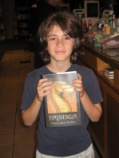
Fan For Life
Five minutes later, my son was fast asleep in the car clutching his autographed copy by his hero who was barely ten years older than him.
Paolini has proved a number of important points:
1. The young generation will read 400-page novels if the material is gripping enough.
2. They will read rich descriptions, convoluted plots, and identify with characters that are deep, vulnerable, and profoundly human (or elf or dwarf).
3. They will thrive on a high level of language.
4. Tolkien might still be king, but he has good company. Paolini is young. His level of craft is only going to improve and that is an exciting prospect.
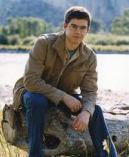
The Master
Two years later, my son and I wrote our first 90,000-word fantasy novel. The seeds were sown in the land of Alagaesia, on the wings of dragons, and in the art of an incredibly talented young man
As the excitement grew for my eldest son and I as the release date for Inheritance neared, my youngest son, eight-years-old, has quietly read more than 250 pages of Eragon.
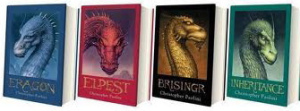
The Complete Trilogy
So Christopher, if by any chance you ever read this: Thank you, as a reader, a fan, and a father.
——————————————————————————————————
Alon Shalev is the author of The Accidental Activist and A Gardener's Tale. He is the Executive Director of the San Francisco Hillel Foundation, a non-profit that provides spiritual and social justice opportunities to Jewish students in the Bay Area. More on Alon Shalev at http://www.alonshalev.com/ and on Twitter (#alonshalevsf).








November 17, 2011
Want Water, Get Nuclear – Roger Ingalls
We can debate the dangers and virtues of nuclear power but its proliferation is inevitable. Pro and con arguments are irrelevant. One basic human need makes nuclear power an absolute necessity.
Water is humanity's lowest common denominator. Without it we die. Drinkable water is precious and in short supply. Only one percent of all water on Earth is potable and accessible. Currently, twenty percent of the world's population does not have daily access to fresh water. Let me rephrase, "today, November 17, 2011, approximately 1,400,000,000 people will not taste safe water".
Fast forward 40 years to 2050. The number of people on Earth has increased by 50% and now sits at approximately 11 billion. Since the Earth won't magically make more potable water, half the world's population (7 billion) will struggle to survive.
Clearly, something needs to be done. We could just let people die off but that would be an economic disaster because we need an ever-expanding population to fuel our financial system that is based on perpetual growth (crazy as that sounds living on a finite planet).
The only option we have is turning salt water into fresh water. Desalination is an energy intensive process. Today, fossil fuels are already stretched thin and most energy experts say we are in or heading into a peak oil scenario where we are draining cheap oil reserves faster than we can find new ones. Also, oil and natural gas are used to manufacture pesticides and fertilizer (respectively) so they will be in heavy demand for agricultural purposes to feed the new billions.
The only way we can produce an adequate amount of fresh water is by running desalination plants with nuclear power.
Again, the arguments about safety are irrelevant. We need to look at this in terms of future lives saved. Nuclear power will prevent the deaths of billions from starvation and thrust. Forget about saving 30 or 40 people from radiation poisoning over the next 50 years – that's crazy logic.
Think in terms of benefits. Think a generation or two into the future.
* The 104 nuclear power plants operating in the U.S. over the past 40 years have not caused a single death while wind energy has already killed 41 in itself short existence.
—————————————————————
Roger Ingalls is well traveled and has seen the good and bad of many foreign governments. He hopes his blogging will encourage readers to think more deeply about the American political system and its impact on US citizens and the international community.








November 16, 2011
Amazon.com: Profit is not Everything
One would assume these are good days for Amazon.com. They continue to report growing profits even after massive long-term investment to sustain and propel their growth. The Kindle, already a bestseller, has repositioned to include a considerably cheaper tablet and even a challenger to the iPad at half the price. The company personifies, in many ways, how a business should be run, building on one success to fuel another.
 Hot is the theme at Amazon.com these days.
Hot is the theme at Amazon.com these days.
What Amazon doesn't need is to personify the negative aspects of big business. Last month, allegations spread across the Internet and into the newspapers that the workers in Amazon's warehouses were subjected to extreme temperature conditions and mandatory overtime.
One ex-employee, Elmer Goris, who worked for ten years at the Lehigh Valley warehouse packing and shipping books, CDs and other products, quit because he had enough of the conditions.
During the heat wave this summer, the temperature rose to above 100 degrees. Workers passed out and paramedics were wheeling them out of the building.
"I never felt like passing out in a warehouse and I never felt treated like a piece of crap in any other warehouse but this one," Goris said. "They can do that because there aren't any jobs in the area."
Amazon.com management clearly knew there was a problem as they parked ambulances from a local company, Cetronia Ambulance Corps, outside the plant with paramedics ready to immediately respond to workers in physical distress, with heat stress and dehydration being the most common. Many workers took a few moments to recover and returned to work. Others were sent home or to the local hospital.
Production wasn't effected, apparently, because there was a line of people ready to take their places. In a recession-hit town, a job, even a temporary for $11-$12/hr lugging merchandize in a hot warehouse, is still a precious job. Amazon outsources their hiring to a temporary employment firm ironically called Integrity Staffing Solutions, who are quick and efficient at replacing workers.
Federal Regulators were brought in after an ER doctor reported an "unsafe environment" having seen so many patients in a short spell of time from the Amazon.com warehouse.
Workers reported that production rate was everything and they were constantly warned that termination was the consequence of not keeping up. Such workers were escorted from the building in full view of their co-workers, a clear warning that this was no idle threat.
Amazon.com have apparently refused to have management interviewed. They issued a statement on their website and while admitting to "multiple" temperature problems at the warehouse, which included "low temperature events" as well as "high temperature events," they were working quickly to address the problems.
Amazon even showed how their warehouses are safer than comparable environments including car assembly plants, general warehouses and department stores, using data from the Bureau of Labor statistics.
I truly hope that Amazon.com are addressing the working conditions in their warehouses. Many of us, though too few, are turning away from companies that manufacture in third world countries where they are free of oversight and can employ child labor in sweatshop conditions. This should be a bigger and more prevalent campaign, but certainly such conditions, which can only take hold in an economic recession, cannot be tolerated.
Amazon.com should be congratulated on their economic growth, especially during a recession. Their innovation is cutting edge, and their commitment to long-term investment should be applauded. However, many of their customers, myself included, will not stay loyal just because the price is right. Jeff Bezoz might want to give the Walton family a call over at Walmart.
And while you are listening, Jeff, I wrote you a letter a while back, with what I thought was a pretty good idea.
——————————————————————————————————
Alon Shalev is the author of The Accidental Activist (now available on Kindle) and A Gardener's Tale. He is the Executive Director of the San Francisco Hillel Foundation, a non-profit that provides spiritual and social justice opportunities to Jewish students in the Bay Area. More on Alon Shalev at http://www.alonshalev.com/ and on Twitter (#alonshalevsf).








November 15, 2011
Would taxing the (super) rich a little more be fair?
Economists always talk about "margins" or "marginal this" and "marginal that." What does this really mean and how does this concept apply to real life?
It's like this: Imagine you're ten years old and your mom brings you late for dinner on Tuesdays, after your little league practice. Your mean older brother has already eaten two of the pork chops (or vegetarian schnitzel, if you prefer) that your dad grilled on the barbeque and there's only one left. Your brother wants it, but your parents intervene and give it to you. Was this a good decision?
It should be pretty obvious that it was. But why, exactly? In technical terms, the decision was a good one because you would get more "marginal utility" from your first pork chop than would your brother from his third.
What might be an even simpler food-based analogy is the good-old pizza story. How much satisfaction do you get from your second piece of pizza (after you've only eaten one)? Compare that to the satisfaction you get from your eleventh slice (after you've already eaten ten). Can you see the difference?
Getting back to economics, how much would the lifestyle of a multi-millionaire improve if he or she all of a sudden received an extra thousand dollars? How much would your lifestyle improve with an extra thousand? I'll bet there's a difference. That's because the marginal utility of a thousand dollars is much higher for the average person than it is for a wealthy person. I think this example could be taken much further. I'm going to say that the marginal utility of $1,000 to the average American adult is much higher than the marginal utility of $100,000 to a multi-millionaire.
OK, are you ready for some fun? Let's do some math! Let's forget about millionaires. Most whine that they don't "feel" rich anyway. Forbes Magazine says that there are 403 BILLIONAIRES (yes, with a B) in America, with a combined net worth of 1.3 Trillion dollars. That divides up to an average of 3.2 billion each. Do you think you could somehow get by on $100,000 per year? These people could "survive" at that level for 32,258 years on average without ever making any more money (not accounting for inflation which is predicted to be pretty bad starting in the year 8011).
My question is simple: What is the marginal utility of the third billion dollars out of $3.2 billion? How much does a person's life improve if he or she has $3.2 billion versus a mere $2.2 billion? Does it enable a person to buy a third private jet, or a sixth summer mansion? What if that money were used to employ people to repair our nations aging and rotting infrastructure? That would mean over 8 MILLION jobs that would pay $50,000 for one year, or 800,000 jobs at $50,000 for ten years.
Now of course these figures are exaggerated somewhat. Some of that money would have to be spent on equipment, materials, etc. But I think the point makes itself. But here's the kicker (and it's a big one)… The billionaires would BENEFIT MORE from this scenario than they presently do by keeping that extra billion dollars. Why? Well, besides having better roads, water supply pipelines, sewage handling and treatment, and many other elements of the quality of life, there would be millions more people with the means to buy their products and services. In fact, the billionaires could probably recoup their "investment" (more or less) in just a few years in dollar terms, but the benefit to their country would outweigh that many times over.
So, I ask again: Would taxing the rich be "fair"?
-Tom Rossi
___________________________________________________________________________
Tom Rossi is a commentator on politics and social issues. He is a Ph.D. student in International Sustainable Development, concentrating in natural resource and economic policy. Tom greatly enjoys a hearty debate, especially over a hearty pint of Guinness.
Tom also posts on thrustblog.blogspot.com
___________________________________________________________________________








November 14, 2011
Happy Birthday Kiva!
Dealing with global issues can sometimes seem so overbearing because of the sheer size of the problems -world hunger, AIDS, population explosions, natural disasters…the list is endless, and it involves billions of dollars needed for billions of people. It can be daunting and lead to paralysis.
The solution is really on two levels. We need to lobby our governments to take on such issues. The United Nations, probably best suited for such a task, is in desperate need of an overhaul, but that isn't going to happen soon.
On the personal level, we can get involved, in a proportion that we can identify with. I have written a number of times about microfinancing, where for just $25, you can help a father of four in Tanzania set up a coffee shop, or a woman in India establish a juice bar. It is truly inspiring.
This brings me to KIVA, a non-profit microfinance bank that raises money through small gifts to help people invest in family or community enterprises. KIVA has just celebrated its 6th birthday and is growing in both scope (different countries) and size.
You peruse the list of individuals who have been approved and invest by donating small increments of money. These are essentially loans, and you will receive notice as the money is being repaid. When it does, your 'account' with KIVA is credited and you could take the money back, though donors often reinvest the money back into helping another person through KIVA. For more on microfinance, click here.
The Jewish teacher, Maimonides, taught of eight levels of giving. The highest level is to offer someone the opportunity to become financially independent. For the last six years, KIVA have been doing just that. With six very successful years behind them, I hope we can go on saving the world together, one person at a time.
——————————————————————————————————
Alon Shalev is the author of The Accidental Activist (now available on Kindle) and A Gardener's Tale. He is the Executive Director of the San Francisco Hillel Foundation, a non-profit that provides spiritual and social justice opportunities to Jewish students in the Bay Area. More on Alon Shalev at http://www.alonshalev.com/ and on Twitter (#alonshalevsf).








November 12, 2011
Exciting Announcment
I shared last month that A Gardener's Tale, a novel I wrote over 10 years ago, has been picked up by Three Clover Press. It received a professional edit and new cover and is leaner if not meaner, but certainly tighter and lighter (sorry, I enjoyed that).
My publisher also generously commissioned Claudia McKinney, who designed Amanda Hocking's book covers, to design a new cover. I love it! Befitting the new e-book economics, A Gardener's Tale is on sale for $2.99.
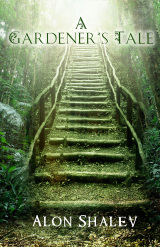
A Gardener's Tale
Here is the pitch:
The garden has seen it all – the cruel events of a thousand years of the struggle between the Pagan religions and Christianity in rural England. A Gardener's Tale follows two years in the lives of a village and the stranger who comes into their community. As the villagers fear for the breakdown of their community, they discover an ancient path that brings them together.
A Gardener's Tale tells of an English aristocratic family now tragically dispersed and of a village community falling apart. Birth, love, death and rebirth remain its never-ending cycle, which includes the magic of nature, the purity of love and the power of true friendship in the hands of a gardener who can harness them all.
Writing a book about the pagan religions was not easy for me. I was in a period of time when I was checking out alternative forms of spirituality, Buddhism, Taoism, Zen, Carlos Castaneda, and New Age. It was an exciting time, and even though my path brought me back to my Judaism, I was able to bring with me parts of the other spiritual practices to enrich my own values and expression.
I am very proud to have received the following critique from Vivianne Crowley, a Pagan High Priestess, who was recognized as one of the leaders of the Wicca movement in Britain. Vivianne actually grew up near the New Forest in England where this story takes place.
"A beautiful and elegiac evocation of a timeless Britain and of a man of the ancient ways of the earth who brings peace and healing where the flames of persecution once burned."
Thank you to Lloyd Lofthouse at Three Clover Press for his patient support, to Claudia for an amazing book cover, and Zorica Gojkovic for her hard work editing this edition.
Let me know what you think of the cover and the book. I love receiving feedback.
——————————————————————————————————————
Alon Shalev is the author of The Accidental Activist and A Gardener's Tale. He is the Executive Director of the San Francisco Hillel Foundation, a non-profit that provides spiritual and social justice opportunities to Jewish students in the Bay Area. More on Alon Shalev at http://www.alonshalev.com/ and on Twitter (#alonshalevsf).

November 11, 2011
Book Tour to Canada: Words I Write Crazy
Next stop on the virtual tour took me to Cochrane, Alberta, Canada where The Accidental Activist was reviewed by Louisa at Words I Write Crazy.

Thank you for the review, Louisa.
Tomorrow – exciting news…
——————————————————————————————————
Alon Shalev is the author of The Accidental Activist and A Gardener's Tale. He is the Executive Director of the San Francisco Hillel Foundation, a non-profit that provides spiritual and social justice opportunities to Jewish students in the Bay Area. More on Alon Shalev at http://www.alonshalev.com/ and on Twitter (#alonshalevsf).
Andy Brandi – P.T.S.D Counsellor
Today is Veteran's Day. I have lifted this post from my friend, Al Levenson, who blogs about his experience: "A Year on the Road." Al met a man named Andy Brandi who served in the Vietnam War. Forty years on, Andy is still living the war.
Andy recounted to Al how when he sits in a room, he will always have his back to a wall and be able to see the door. When he crosses a parking lot he will automatically scan the roofs of the surrounding buildings. A car backfiring can make him instantly drop to the floor.
These stories sent chills through me.When my family first arrived in the US, we visited Chinatown in San Francisco with some friends. As we exited a store someone let off a firecracker. I instinctively threw my son (then 2 years old) behind a parked car and dived on top of him.
I freaked the group out (not least my two-year-old) and we decided to go sit for ice cream and tea. One of our friends asked me about my reaction and my wife told about other behavior traits I have that I took as 'normal.' This was the first I heard of Post Traumatic Stress Disorder (P.T.S.D). I too hate to have my back to a door and scan around me in unfamiliar urban areas. I have been shot at from roof tops and had rocks and Molotov cocktails thrown from above.
Today P.T.S.D is recognized as a genuine anxiety disorder caused by extreme psychological trauma. In a severe condition, it can overwhelm the person and rend them helpless to deal with it. Symptoms include "re-experiencing the stress through flashbacks, or nightmares, difficulty falling or staying asleep,anger and hypervigilence to the extent of impaired social function. Most often, they are plagued by a feeling if intense guilt that they survived when so many who were close to them did not.
Andy has written a book meant to serve as a guide for those (and their loved ones) who are fighting a fight they should have left behind in the desert or the jungles. Al says that The Warrior's Guide to Insanity, Traumatic Stress and Life, "is a book that will haunt you from the first page."
Al says that the most important message in the book is that there is help available to the combat vets today. Although Andy is critical of the level of services, they are vastly underfunded in his opinion, he points out that the Veteran's Administration does offer counseling, and there is peer support at the posts of Veterans of Foreign Wars. He encourages veterans to reach out to these services.
Finally, Brandi wants to get his book in the hands of elected officials, who need to understand that a war costs more than the weapons and soldiers deployed.
Andy maintains a website (www.sgtbrandi.com) from where he wants to reach out and support veterans. He is also happy to speak to veteran's groups.
The Warrior's Guide to Insanity, Traumatic Stress and Life is free to combat vets and their families and Andy funds his book giveaway from his own pension and disability checks. If you wish to help get his books into the hands of those who need it, you can donate at the following address. Just $20 can help cover the p&p for a half dozen books to get to men and women who need to read it.
Sergeant Brandi, P.O. Box 574, Cerrillos, New Mexico, 87010.
The Warrior's Guide to Insanity, Traumatic Stress and Life is also available from Amazon in tree or e-book. Buying a copy will help fund more books going out for free. Put that book in the hands of a veteran that you know is suffering.
Show them you care.
——————————————————————————————————
Alon Shalev is the author of The Accidental Activist and A Gardener's Tale. He is the Executive Director of the San Francisco Hillel Foundation, a non-profit that provides spiritual and social justice opportunities to Jewish students in the Bay Area. More on Alon Shalev at http://www.alonshalev.com/ and on Twitter (#alonshalevsf).








November 10, 2011
My Cosmic Birthday – Roger Ingalls
According to western culture, I have a milestone birthday today.
For the past few weeks my wife has been telling our friends, "Roger has a big birthday coming up". So everyone's been asking, "How old are you?"
I pause and give a little smirky-smile before answering the question. My response is similar to the one I give when asked, "Where are you from?" I'm an alien, I come from the stars. I'm an evolving coalescent-blob of star dust with my family tree tracing back to the Big Bang. Just like everything else in the Universe, I'm 13.7 billion years old. Okay, scientifically speaking, many of the heavier elements that make up most of my body were created by hot stars 4.5 billion years ago but these newer elements were derived from the older ones.
Eventually, my body, like all things, will be broken down and recycled or reincarnated into something else. In a few billion years, when our sun supernovas, the elements that were once part of my body will be blown back into deep space, from where I once came.
Everything comes from the same place and is recycled over and over. The Universe, Earth and Mother Nature are in a constant cycle of building up and breaking down. In reality there is no hierarchical food chain and there is no survival of the fittest, all things – big and small – eventually get eaten by something.
Most people, when they take a moment to think, understand this cyclical process. But yet, modern society endorses an economic system based on infinite growth that is counter to the realities of nature. Infinite growth cannot and does not exist, all things break down. Look around, cheap energy is gone, clean water is limited, fertile soil is gone as well as many other essentials. Our economic system of taking without giving back has stripped the Earth of necessities required for long-term human existence. Humanity may have hit the apex with the breakdown soon beginning. If we continue with the infinite growth system, the fall will be catastrophic.
My birthday wish: extend man's existence. To prolong humanity, we need to develop or return to an Earth friendly economic system. Man's extinction and the return to stardust are inevitable but we can slow it down, if we wish.
For those interested, I turned 50 today. I'm feeling a little cosmic with a sense of urgency.
——————————————–
Roger Ingalls is well traveled and has seen the good and bad of many foreign governments. He hopes his blogging will encourage readers to think more deeply about the American political system and its impact on US citizens and the international community.










